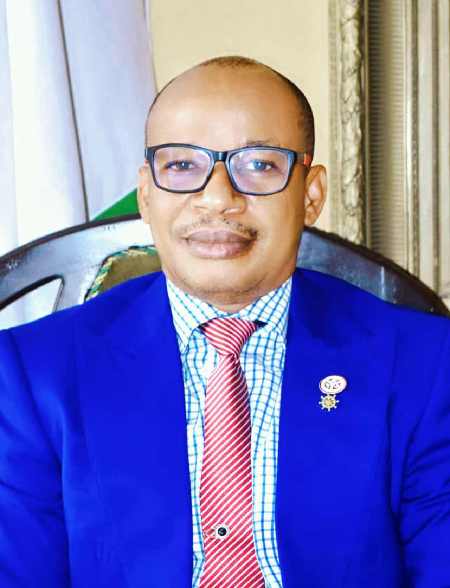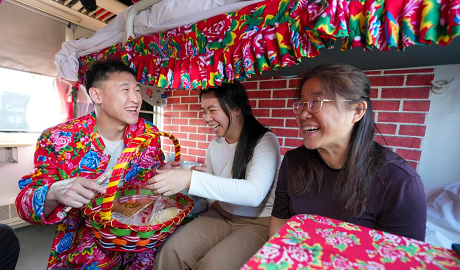


Photo provided to Guangming Online
China’s Foreign Minister Wang Yi again visits the continent of Africa to kickstart China’s diplomatic activities of a new year. This time, the countries to be visited are Namibia, the Republic of the Congo, Chad, and Nigeria. This visit by China’s Foreign Minister, which has been ongoing for the past 35 years, is not only a yearly ritual of assurance that China and Africa's cooperation remains at utmost, but importantly, to give impetus to and consolidate the existing relationship.
Over the years, each of these visits has addressed key challenges facing China as well as the African continent pivoting on various facets of their deep-rooted partnership and cooperation, which today has remained unprecedented in contemporary international relations. This particular visit is very significant for the continent of Africa, taking into consideration the fact that the 2024 Summit of the Forum on China-Africa Cooperation (FOCAC), held in Beijing last September, having marked another three years in which the Plan of Action and all the obligations agreed on will begin to manifest in the spirit of sincerity, real results, amity and good faith.
Just as stated by China’s Foreign Ministry Spokesperson, “the purpose of the visit is to implement the outcomes of the Forum on China-Africa Cooperation Beijing Summit and deepen practical cooperation across the board for sustained and substantive growth of China-Africa relations”.
The question now remains, what are the issues to be discussed and prioritized beginning this year after Wang's visit? These are not far-fetched. Topmost of these issues will be modernization, which Chinese President Xi Jinping in his welcoming speech at the last FOCAC meeting sees as an “inalienable right of all countries”. Accordingly, it is only through modernization that historical injustices will be redressed and a new chapter in China and Africa's drive toward a community with a shared future for mankind opened up.
Another area of focus will include poverty alleviation in Africa. Compared to other regions of the world, Africa has the highest rate of extreme poverty. Using a poverty line of $1.90 per day, Africa's extreme poverty rate is estimated to be around 35.5%. Poverty has many causes, all of which reinforce one another. In Africa, contributing factors include inadequate infrastructure, income inequality, lack of access to clean water, high unemployment rates, limited educational opportunities, insufficient healthcare, economic instability, poor economic policies, and ineffective leadership and governance.
According to the Beijing Declaration, China and Africa is about to jointly build a high-level China-Africa Community with a Shared Future, standing ready to deepen experience sharing in such areas as modernization and poverty reduction. In that sense, Wang’s meetings in these countries will focus considerably on alleviating poverty in Africa.
A central focus of Wang’s discussions during this visit is expected to be China's role in the development and improvement of Africa’s infrastructure, a critical challenge for the continent's progress. The African Development Bank (AfDB) estimates that Africa requires between $130 billion and $170 billion annually for infrastructure financing. At present, the funding amounts to only between $68 billion and $108 billion annually. Since the inception of the Forum on China-Africa Cooperation (FOCAC), China has made substantial investments in Africa's infrastructure development. To date, it has pledged over $170 billion in grants and loans for infrastructure projects across various African countries, which are evident in numerous nations throughout the continent. No doubt, today Africa is China's number one infrastructural development destination and the “Belt and Road Initiative" remains the compass for building and upgrading Africa’s infrastructure.
I cannot end this article without bringing to bear an important area of convergence between China and Africa, which has been at the heart and interest of the two to firmly uphold and practice true multilateralism. Taking into consideration the ongoing global turbulence and transformation, the Chinese foreign minister’s visit will not hesitate to bring assurances of China’s commitment to multilateralism against unilateralism, bullying practices, and pseudo-multilateralism of whatever forms around the world. He will also extract commitments from the countries visited and Africa as a whole towards win-win results, world peace, mutual benefit, common development, and contribution to addressing global challenges for the greater benefit of the people.
Article contributed by Prof. Efem N. Ubi, Professor of International Relations/Strategic Studies and China-Africa Studies, Director of Studies at the Nigerian Institute of International Affairs, and Distinguished Visiting Professor, Institute of African Studies, Zhejiang Normal University.

Various festive events held across China to celebrate upcoming Chinese New Year


Hit epic drama sparks interest in lesser-studied chapter of ancient Chinese history

Lanterns hoisted to mark upcoming Chinese New Year in Hong Kong

"In-train fair" launched in NE China's Heilongjiang amid Spring Festival travel rush
点击右上角![]() 微信好友
微信好友
 朋友圈
朋友圈

请使用浏览器分享功能进行分享
